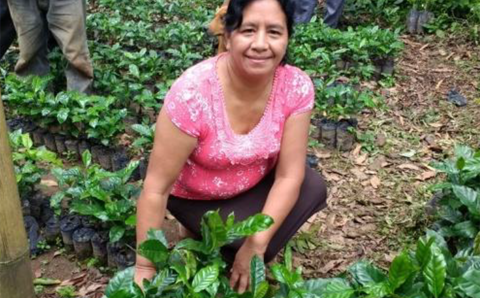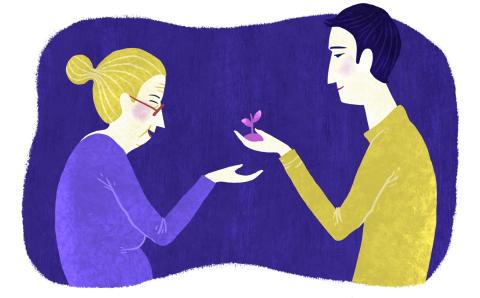Across Canada, Christian Reformed churches are engaging in activities and education to help their congregations move toward reconciliation with their Aboriginal and Indigenous neighbors.
In Edmonton, Jesse Edgington of the Northern Alberta Diaconal Conference presented a one-day workshop using the tool “Living the 8th Fire,” a resource put together by the Canadian Aboriginal Ministry Committee (CAMC) and the Centre for Public Dialogue.
The conference had previously shared the program, originally designed as a seven-week study, with other churches and diaconates. “It was really well received, and the people who came and participated really enjoyed it and were quite moved by it,” Edgington said. Wanting to offer it again and to figure out ways to help other groups facilitate their own program, they decided to condense the material into a one-day format.
Ten people from two churches and a couple of community ministry groups gathered in mid-July to for the condensed presentation. They screened videos, participated in discussions, and shared lunch and time to connect with nature. Edgington said the presentation was a good opportunity for those who attended to see how they might make the program work for a small group in their own church, spreading the usefulness of the resource.
In addition to running the 8th Fire session, Edgington helped organize two reconciliation walks, which he described as acts of remembering and restoration that serve to build positive relationships with Indigenous peoples.
On the East Coast of Canada, Priya Andrade, who works with CAMC and attends All Nations CRC in Halifax, N.S., co-taught “Living the 8th Fire” curriculum to her church’s youth group in April. “It was amazing. It blew my mind and opened my heart. It sounds so cliché to say, but children and youth are so open,” Andrade said.
Meanwhile, in Calgary, The Road Church has been steadily making their own efforts toward reconciliation, in part by engaging in CAMC’s preaching challenge based on the question “What do the biblical calls to hospitality and reconciled relationships mean for your church’s relationships with local Indigenous peoples?” Their response included inviting an Indigenous elder, Cheryle Chagnon Greyeyes, to speak at their service.
And in Winnipeg, Good News Fellowship ran an eight-week small group based on the Truth and Reconciliation Report. The group was able to share their learnings with the rest of the congregation during June’s Aboriginal Sunday service.
Edgington sees Aboriginal ministry as a key way to connect churches and neighboring communities. He sums up the importance of all these reconciliation efforts recognizing the large justice need as well: “As deacons, and as Christians, we need to be looking at the systems we live in, how [they] affect the people and how [they] affect those that are hurting the most. And too often, it’s Indigenous people within our communities who are suffering.”
Andrade added, “One of the main things I've learned about being a member in CAMC and looking through and teaching Living the 8th Fire, is being comfortable with being uncomfortable. We can't deny history. We also can't erase it, as much as nations have tried. Especially in this time, Canada has been coming to the realization and the acceptance of knowing that they not only need to admit to what has happened in the past, but that they also need to actively make amends.”
About the Author
Krista dela Rosa is a freelance news correspondent for The Banner. She lives in Winnipeg, Manitoba, Canada and attends Good News Fellowship Church.







